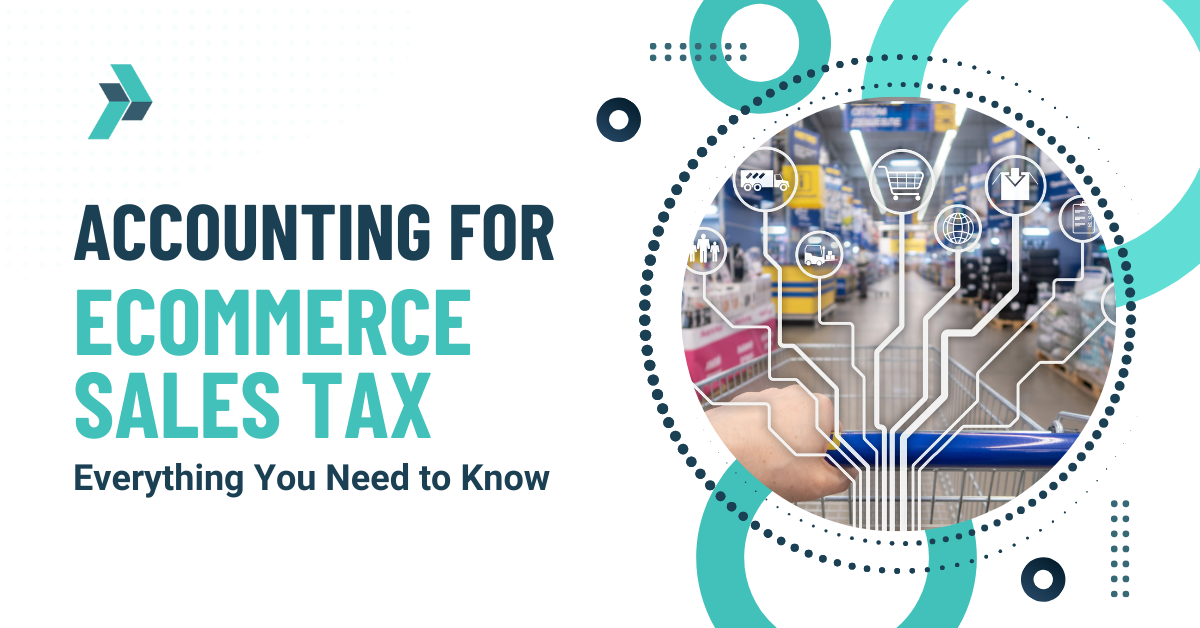Regulating your sales tax obligations can be one of the most complicated aspects of running an ecommerce business. This is because online sales cover many states and countries. Ecommerce operators often face challenges understanding, collecting, and remitting sales tax. The essentials of accounting for ecommerce sales tax, offering insights and practical advice for ecommerce bookkeepers and business owners.
What is Ecommerce Sales Tax?
A sales tax is a consumption tax on the sale of goods and services by the government. Sales tax liability for an e-commerce business is determined by whether it has: “Tax nexus” in the jurisdiction of the buyer, seller, and relationship may arise from factors such as physical presence. Employee location or even restrictions on online sales.
Ecommerce bookkeepers play a key role in ensuring accurate sales tax tracking and compliance. and protect businesses from penalties and reputational risks.
Why Is Accounting for Ecommerce Sales Tax Unique?
Unlike traditional brick-and-mortar businesses, ecommerce companies often sell to customers across multiple regions. This creates the challenge of adhering to varying tax laws, rates, and filing requirements.
Some unique aspects include:
- Destination-Based Taxation
Many jurisdictions require sellers to collect sales tax based on the buyer’s location. This means different tax rates may apply to each transaction.
- Marketplace Facilitator Laws
Platforms like Amazon, eBay, or Etsy are often responsible for collecting and remitting sales tax on behalf of their sellers. However, ecommerce businesses must still account for these transactions correctly.
- Cross-Border Sales and VAT
Selling internationally brings additional complexity with VAT (Value-Added Tax) in regions like the EU and GST (Goods and Services Tax) in countries like Canada and Australia.
Accounting ecommerce professionals must stay updated on these regulations to ensure seamless compliance.
Steps to Manage Ecommerce Sales Tax
- Determine your sales tax relationships
Find out where your business’s tax obligations lie. This includes states where you have a physical store or have reached a certain sales threshold.
- Register for a sales tax license
Register with the jurisdiction in which you must collect sales tax. Operating without a license may result in fines.
- Automatic tax calculation
Use a tool like Avalara or TaxJar to automatically calculate sales tax. These integrate with ecommerce platforms to reduce the risk of manual errors.
- Track and record transactions
Make sure that the sale Collected taxes and all discounts are recorded correctly. This is important for audit preparation. An ecommerce accountant can set up a reliable system to streamline this process.
- Submit a tax form
File sales tax returns on time and remit collected amounts to the applicable jurisdiction. Missing deadlines may result in penalties and interest charges.
- Review tax laws regularly
Tax regulations change frequently. Verify compliance and stay informed. Partnering with ecommerce accounting experts can help your business navigate these changes effectively.
Benefits of Professional Help with Ecommerce Sales Tax
Hiring experienced ecommerce bookkeepers or accounting ecommerce specialists offers several advantages:
- Accuracy: Professionals ensure precise calculations and reporting, minimizing the risk of errors.
- Time Savings: Outsourcing allows you to focus on growing your business instead of managing tax complexities.
- Audit Protection: Experienced bookkeepers help maintain detailed records, reducing stress in case of an audit.
- Scalability: As your ecommerce business grows, accounting experts can adapt systems to meet your evolving needs.
Enhance Your Ecommerce Accounting with Ceptrum
For reliable support in accounting for ecommerce, consider Ceptrum. With expertise in ecommerce-specific challenges like sales tax compliance and inventory management, Ceptrum offers tailored solutions to meet your business needs. Their team of experienced professionals ensures accuracy, compliance, and peace of mind, helping your business grow without financial headaches.
FAQs
- What is the sales tax nexus? And why is it important?
Sales tax integration refers to the relationship between a business and the state that gives rise to tax liability. This is important because it determines where you must collect and remit sales tax.
- How do I calculate sales tax for ecommerce transactions?
Use an automation tool like Avalara or TaxJar that integrates with your ecommerce platform to calculate sales tax based on the buyer’s location.
- Should I collect sales tax on international sales?
For international sales Depending on the buyer’s country, you may need to pay VAT or GST. Research or consult with an expert to understand your obligations.
- What happens if I don’t comply with sales tax laws?
Failure to comply may lead to fines, penalties, and inspections. This can damage your business’s reputation and finances.
- Can accounting software manage ecommerce sales tax compliance?
Yes, accounting and ecommerce software like QuickBooks or Xero can handle sales taxes. Especially when paired with a tool like Avalara or TaxJar for automated calculations.
Read More:
Data Security in Outsourced Bookkeeping: New Challenges and Solutions





